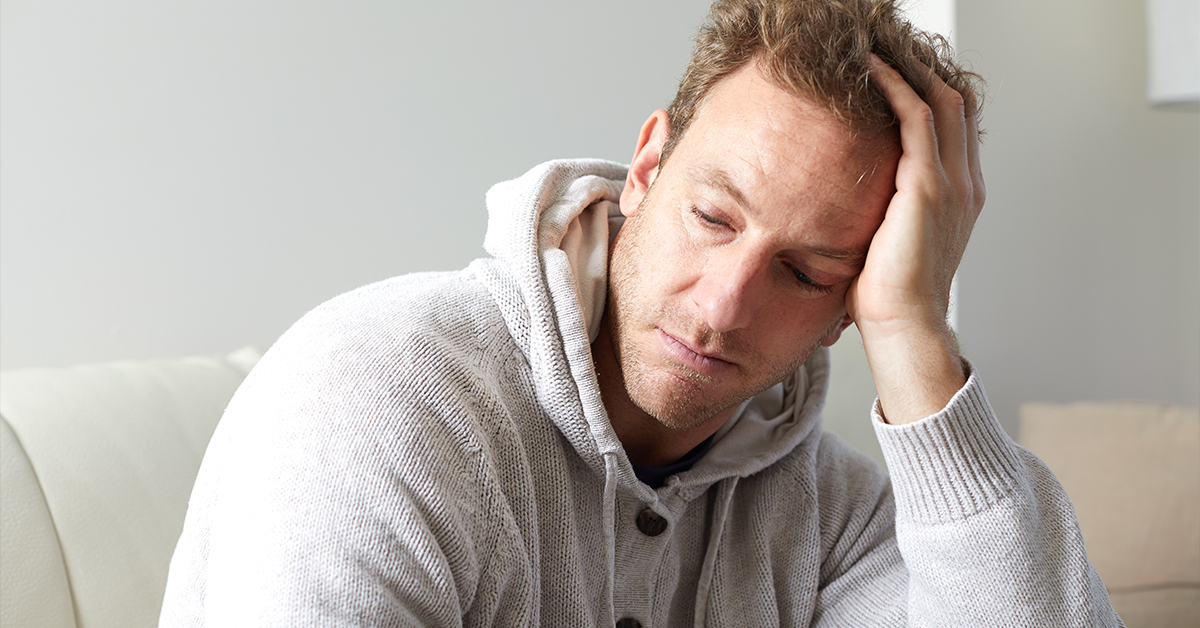Our state of mind and mental health affect every part of our bodies. Those who experience stress, anxiety, or other psychological conditions are more likely to experience physical symptoms and side effects than those with higher levels of mental wellbeing. This even extends to the health of our hair. As Mental Health Awareness Month approaches, it’s a good time to examine the connection between mental health and hair loss.
Can Your Mental Health Affect Your Hair?
Your mental health has a significant impact on the health of your hair. Stress, anxiety, bipolar disorder, depression, PTSD, OCD, and other psychological issues can contribute to excess shedding or permanent hair loss. As well as possibly triggering behaviors that have a negative effect on your hair.
In turn, hair loss – whether from mental health issues or some other cause – can lead to stress, anxiety, and decreased self-esteem. This creates a vicious cycle of counterproductive emotional and physical reactions that wreak havoc on your scalp.
Can Stress and Anxiety Damage Your Hair?
Stress and anxiety are primary causes of telogen effluvium – a type of excess shedding occurring when the hair’s growth cycle is disrupted by physical or emotional stressors. In telogen effluvium, larger than usual numbers of follicles are pushed into their resting phase. With increased shedding and slower regrowth, one’s hair appears significantly thinner.
Mental illness, anxiety, and stress are also triggers for alopecia areata and other autoimmune responses that cause hair loss. Autoimmune hair loss occurs when the immune system attacks the hair follicles, resulting in excess hair fall and bald patches on the scalp or elsewhere on the body.
Stress may also cause individuals to develop behaviors that are detrimental to their hair and scalp. The most obvious of these is failing to care for one’s health. Inadequate sleep, lack of exercise, and poor diet multiply the effects of telogen effluvium and other types of stress-related hair loss. Stress may even cause sufferers to literally pull out their hair. Trichotillomania is a condition where an individual nervously pulls on a section of hair on their head, eyebrows, or other location on the body. If left unaddressed, it can cause permanent bald spots in the affected area.
Can Depression Mess with Your Hair?
Depression hair loss is similar to that of stress and anxiety. It may trigger telogen effluvium, hair-related autoimmune issues, and negative or hair-damaging behaviors. Additionally, some antidepressant medications have been implicated in excessive hair shedding and slow regrowth. Both selective serotonin reuptake inhibitor (SSRI) medications and bupropion may cause or worsen telogen effluvium.
At Reef Hair, We Care for Your Hair While You Focus on Your Mental Health
Fortunately, many types of mental health related hair loss will grow back if you maintain a healthy lifestyle and address the root cause of the issue. This process can take months, but in the meantime, there are steps you can take to preserve your hair and stimulate its growth.
While you focus on your mental health, Reef Hair can protect your hair and maximize its growth with minimally invasive procedures like platelet rich plasma therapy and other hair preservation or replacement options. To learn how you can get slow or reverse hair loss and get a thicker, fuller head of hair… contact us today to set up a consultation. We look forward to guiding you on your hair replacement journey.


